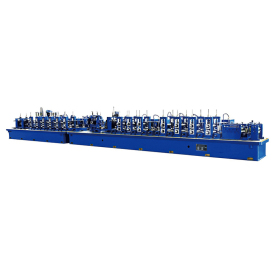****
Cold cutting saw machines are indispensable tools in various industries, especially in metalworking and manufacturing. These machines use a specialized saw blade to achieve precise cuts without generating excessive heat, which can affect the integrity of the material being cut. However, like any piece of machinery, cold cutting saws require regular maintenance and, at times, replacement parts to ensure optimum performance and longevity. This guide will delve into the critical aspects of cold cutting saw machine replacement parts, including their types, the importance of timely replacements, and tips for selecting the right components.
Understanding Cold Cutting Saw Machines
Cold cutting saws differ from traditional saws in that they do not rely on friction to cut materials. Instead, they use toothed blades that slice through metals with minimal heat generation. This not only improves cutting precision but also reduces the risk of altering the material properties, making them ideal for applications requiring fine cuts like in automotive, aerospace, and structural engineering.
Importance of Replacement Parts
As with any mechanical system, wear and tear are inevitable in cold cutting saws. Replacement parts are essential for maintaining the saw’s performance and ensuring the safety of operators. Neglecting to replace worn-out components can lead to suboptimal cutting quality, increased downtime, and potentially hazardous working conditions. Additionally, regular upgrades and replacements can enhance the machine’s efficiency, increase production speeds, and improve overall energy consumption, leading to cost savings in the long run.
Types of Replacement Parts
1. **Blades**: The cutting blade is arguably the most critical component of a cold cutting saw. Over time, blades can become dull, chipped, or bent, leading to inaccurate cuts. Various blade types are available, designed for different materials and thicknesses. For example, bi-metal blades are often used for cutting harder materials, while carbide-tipped blades may be more suitable for general-purpose cutting. Regularly inspecting and replacing blades based on usage can significantly enhance cutting performance.
2. **Drive Motors**: The drive motor powers the cutting mechanism. If the motor begins to fail or produce unusual noises, it may need to be replaced. Understanding the specifications of the current motor is vital for selecting an appropriate replacement, as using an incompatible motor could affect performance and safety.
3. **Bearings and Bushings**: Bearings support the saw’s moving parts, allowing for smooth operation. Worn bearings can lead to increased friction, overheating, and mechanical failures. Replacing bearings and bushings as part of routine maintenance ensures a smooth cutting process and prolongs the lifespan of the machine.

Essential Guide to Understanding Cold Cutting Saw Machine Replacement Parts and Their Importance in Maintaining Operational Efficiency
4. **Hydraulic Parts**: Many cold cutting saws employ hydraulic systems for feeding and cutting operations. Damaged or leaking hydraulic components must be replaced to maintain the efficiency and functionality of the machine. Regular checks and replacements of seals, hoses, and hydraulic pumps are essential for optimal performance.
5. **Control Systems**: Modern cold cutting saws often include electronic control systems that manage speed, feeding, and cutting processes. Malfunctions in these systems can disrupt the entire operation. Keeping these components updated and in good working condition through regular replacements is crucial for maintaining precision cutting.

Essential Guide to Understanding Cold Cutting Saw Machine Replacement Parts and Their Importance in Maintaining Operational Efficiency
Tips for Selecting Replacement Parts
1. **Compatibility**: Always refer to the manufacturer’s specifications when selecting replacement parts. Using parts that are not designed for your specific model can result in mechanical failure or safety hazards.
2. **Quality**: Invest in high-quality replacement parts, preferably original equipment manufacturer (OEM) components. While cheaper alternatives may initially seem appealing, they often lack the durability and reliability of OEM parts.
3. **Supplier Reputation**: Choose reputable suppliers for your replacement parts. Research their reliability, customer reviews, and return policies to ensure you receive the best products for your machine.

Essential Guide to Understanding Cold Cutting Saw Machine Replacement Parts and Their Importance in Maintaining Operational Efficiency
4. **Regular Maintenance**: Developing a scheduled maintenance plan can help preemptively identify the need for replacement parts, reducing the likelihood of unexpected downtime.
Conclusion
Cold cutting saw machine replacement parts play a vital role in maintaining the efficiency, accuracy, and safety of these essential industrial tools. By understanding the specific components that require periodic attention and following best practices for selecting and replacing parts, businesses can ensure their cold cutting saws operate at peak performance. Regular maintenance not only extends the lifespan of the machinery but also supports uninterrupted workflows, ultimately contributing to improved productivity and profitability in manufacturing processes.Portable Cold Cutting Saw Machine



